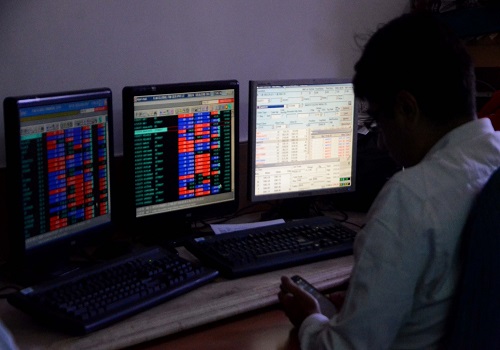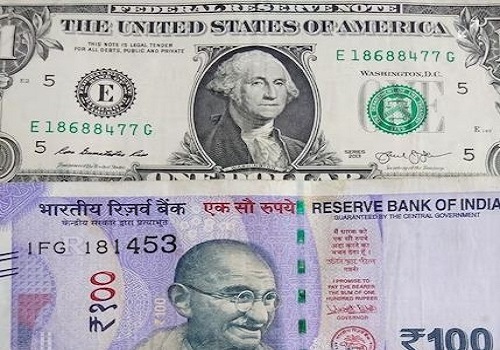Opening Bell: Markets likely to open in red tracking weakness in global markets

Indian markets ended Wednesday's session slightly higher after fluctuating in early trade on rising geopolitical tensions. Today, markets are likely to open in red tracking weakness across global markets. Also, there will be some volatility in the markets on account of weekly F&O expiry. Foreign fund outflow likely to weighed down on domestic sentiments. According to provisional data available on the NSE, foreign institutional investors have net sold shares worth Rs 386.06 crore on November 16. However, some respite may come later in the day with the commerce ministry's data showing that India's exports to the UAE, with which a free trade agreement was implemented on May 1, rose by 17.6 per cent to about $18 billion during April-October this fiscal. Some support may come with a private report that after declining for three consecutive quarters, the value of FPI investment in Indian equities rose 8 per cent quarter-on-quarter to $566 billion in the July-September period. Traders may take note of Commerce and Industry Minister Piyush Goyal’s statement that India will be launching negotiations for a free trade agreement (FTA) with a region next week. He said that negotiations are going on with countries, including the UK, European Union, Canada and Israel. Banking sector stocks will be in limelight as Reserve Bank of India (RBI) Governor Shaktikanta Das said that despite challenges, the Indian banking sector has been resilient and improved in various performance parameters. There will be some buzz in sugar industry stocks as the government notified exports of 8,606 tonnes of raw cane sugar under the tariff-rate quota (TRQ) scheme to the US. Oil & gas industry stocks will be in focus as the government hiked windfall tax on domestically produced crude oil while reducing the rate on export of diesel. The tax on crude oil produced by firms such as state-owned Oil and Natural Gas Corporation (ONGC), was hiked to Rs 10,200 per tonne, from Rs 9,500 per tonne, with effect from November 17. There will be some reaction in airline industry stocks amid report that the government will increase the regional air connectivity levy charged from airlines operating on major routes to Rs 10,000 per departure from January 1, a move that could push the airfares higher.
The US markets ended lower on Wednesday after stronger-than-expected retail sales data faded hopes of Fed easing aggressive rate hike cycle. Asian markets are trading mostly in red on Thursday following overnight losses on Wall Street.
Back home, Indian equity benchmarks managed to end Wednesday’s session marginally in green after swinging between gains and losses ahead of the weekly F&O expiry. Investors kept a close eye on the Ukraine-Russia war situation with Poland reportedly being hit by Russian missiles. Markets made negative start, as traders got concerned with data released by the commerce ministry showing that India's merchandise trade deficit widened to $26.91 billion in October as exports crashed by 17 percent year-on-year to $29.78 billion while imports rose by 6 percent. The trade deficit stood at $17.91 billion in October 2021. Some pessimism also came in as foreign institutional investors (FIIs) have net offloaded shares worth Rs 221.32 crore on Tuesday, according to the provisional data available on the NSE. But, key indices soon reversed losses and traded in green in afternoon deals, taking support from the Central Board of Direct Taxes (CBDT) chairman Nitin Gupta’s statement that direct tax collections are likely to be 25-30% more than the budget estimate (BE) of Rs 14.2 trillion for the current fiscal. Markets wiped out all their gains and once again fell into red terrain in late afternoon session amid volatility. Traders also remained cautious as global ratings agency Moody's Investors Service has given a 'negative outlook' to credit worthiness of countries globally including India, for 2023, saying high prices of food and energy would curb economic growth and raise social tensions. It said tighter financial conditions and economic scarring will push some debt burdens to unsustainable levels, while rising borrowing costs will erode debt affordability. But selective buying in late trades helped key indices to end in positive territory. Traders also took a note of reports that States got some reprieve in their debt cost with the weighted average price falling by 12 bps to 7.67 per cent due to receding appetite from issuers as they received tax payouts from the Centre last week. Finally, the BSE Sensex rose 107.73 points or 0.17% to 61,980.72 and the CNX Nifty was up by 6.25 points or 0.03% to 18,409.65.
Above views are of the author and not of the website kindly read disclaimer







.jpg)












